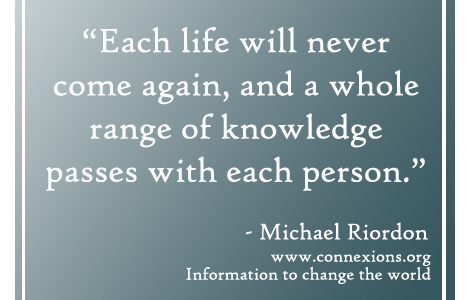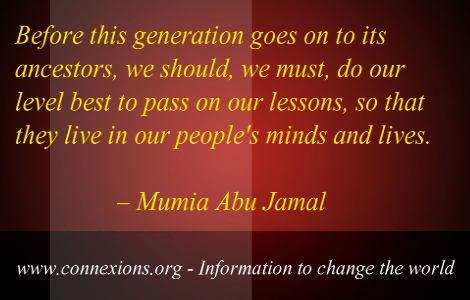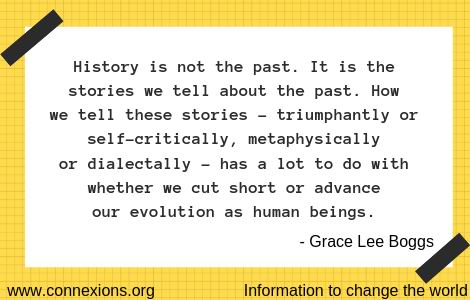
Information to change the world | |
Find Topics, Titles, Names related to your query |

Information to change the world | |
Find Topics, Titles, Names related to your query |
|
|
“How did you organize before the Internet?”Connexions is working on a project devoted to answering that question, and we’d like your help. We are looking for your recollections, stories, photos, and descriptions of your work, and we are also looking for samples of printed and other materials that you or your group produced. We are hoping to produce, first, a feature for the Connexions website – www.connexions.org – that allows visitors to the website to explore and learn about the many different ways people on the left met the challenge of ‘getting the word out.’ We’re focusing especially on the “means of production” (of course!) and on the means of distribution, but we also want to pay attention to the political context and debates people were engaged in. Down the road we are hoping to pull together a physical exhibit, in collaboration one or more organizations which have a suitable space, displaying some of those means of production and the materials produced with them. What we are looking for now is your memories. Written accounts would be great. Perhaps today is the day to sit down and describe the nitty-gritty of the behind-the-scenes work that went into all that political organizing. Maybe you’d like to sit down with your fountain pen, or your manual typewriter, and start recording those memories on paper. (Although we would actually prefer to receive digital files.) We would also be happy to arrange an interview (phone or in-person) to add to Connexions’ collection of oral history interviews. Photos would be great too. And so would leaflets, posters, newsletters, etc. which we could scan and put online. Our vision of the ‘Getting the Word Out’ project includes at least three dimensions: What, How, and Why. The ‘What’ might include leaflets, posters, buttons, stickers, postcards, newsletters, newspapers, pamphlets, T-shirts, audio cassettes, guerilla theatre, songs, slogans and chants, and probably lots of other things we haven’t thought of. The ‘How’ might include describing how we used our means of production, like that Underwood typewriter (with whiteout for correcting mistakes!), and later that IBM Selectric with the golf balls, that mimeograph or Letraset machine with its stencils and inks, the silk-screen and the photographic darkroom, the smaller bits of equipment like Xacto knives, waxers, border tapes, and blue pencils, and of course the condensed milk mixture for putting up posters. We’d also like to hear about how the messages in those leaflets, newspapers, etc. were used to reach people: at workplaces, street corners, demonstrations, and wherever else you tried to engage people politically. Perhaps you remember phone trees, or the "Dial-a-Commie" answering machine? As for the ‘Why,’ perhaps you might share some thoughts about the strategies you pursued, and to what extent they were successful. Did they bring us closer to the Revolution? Don’t feel that you are being asked to produce a magnum opus. A quick sketch, even a paragraph or two, would be very welcome. Whatever works for you. We hope it might be fun to get some of those memories recorded. If you have stories to tell, experiences to share, or questions, please contact us at Connexions. And please share this request with other people who might be interested.    Related Reading: |